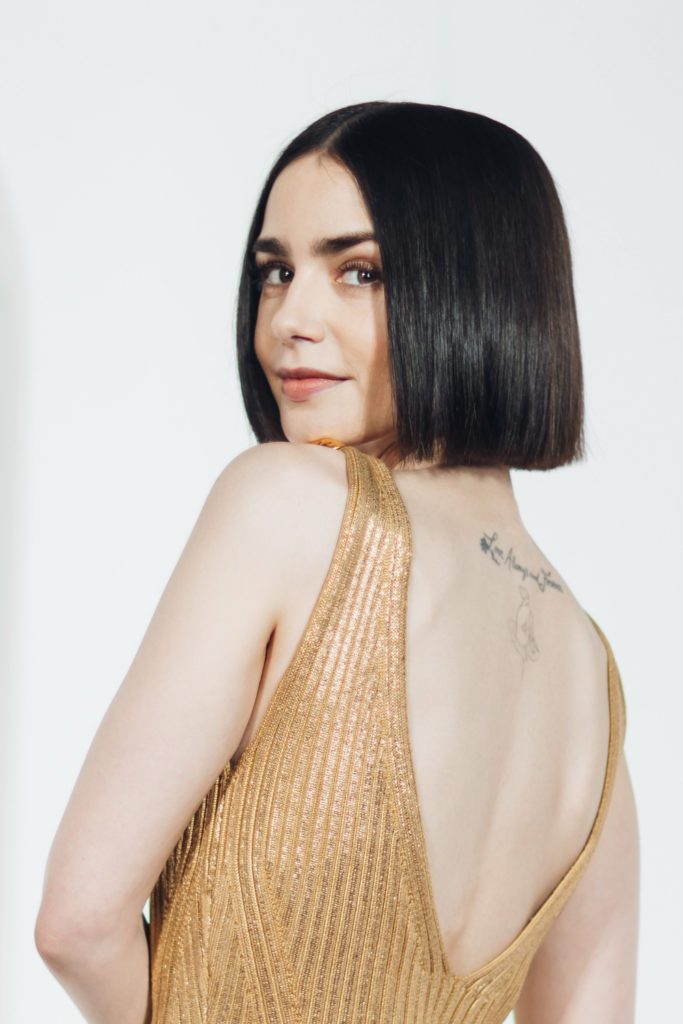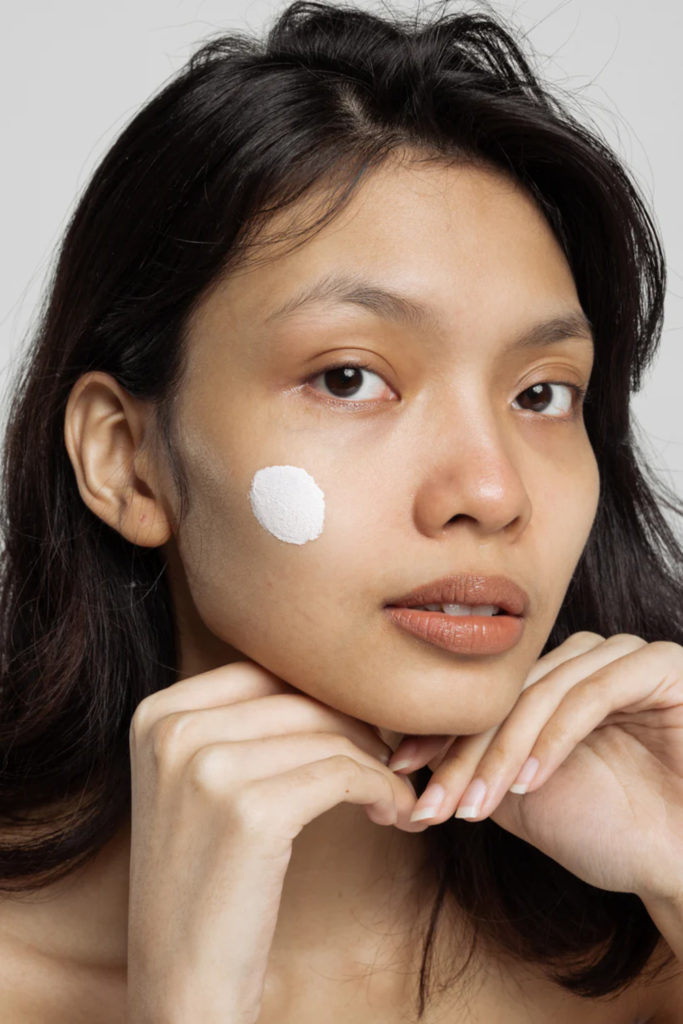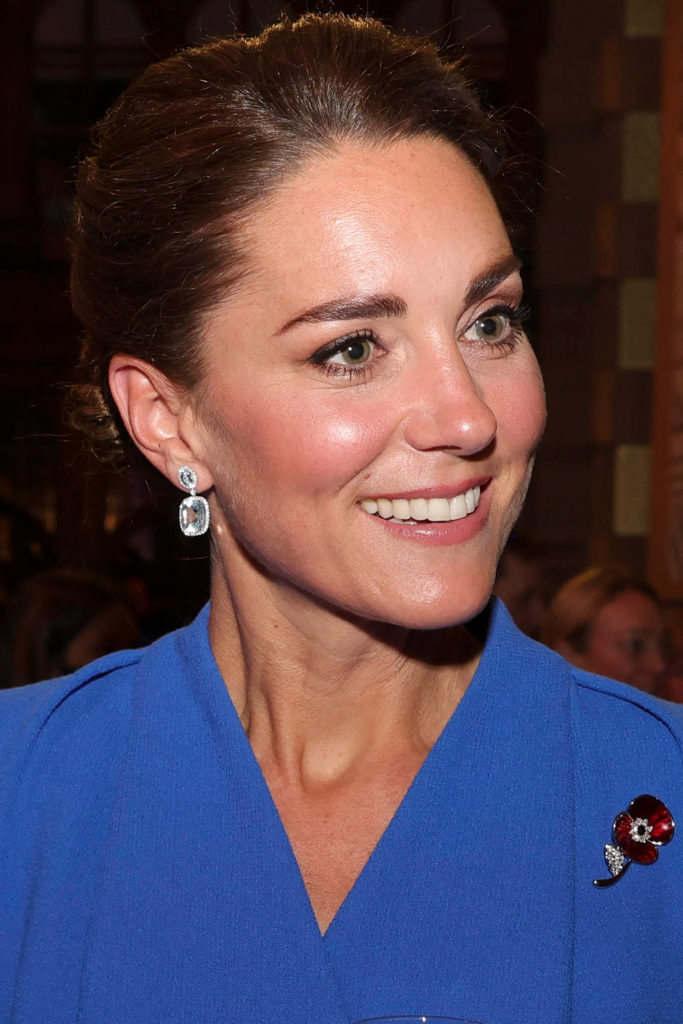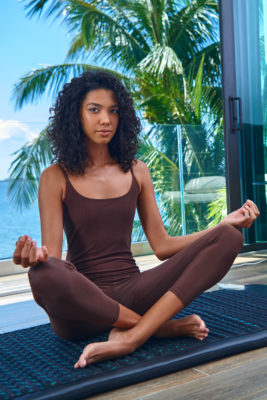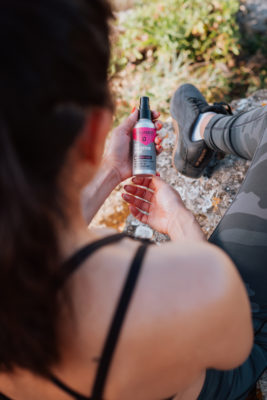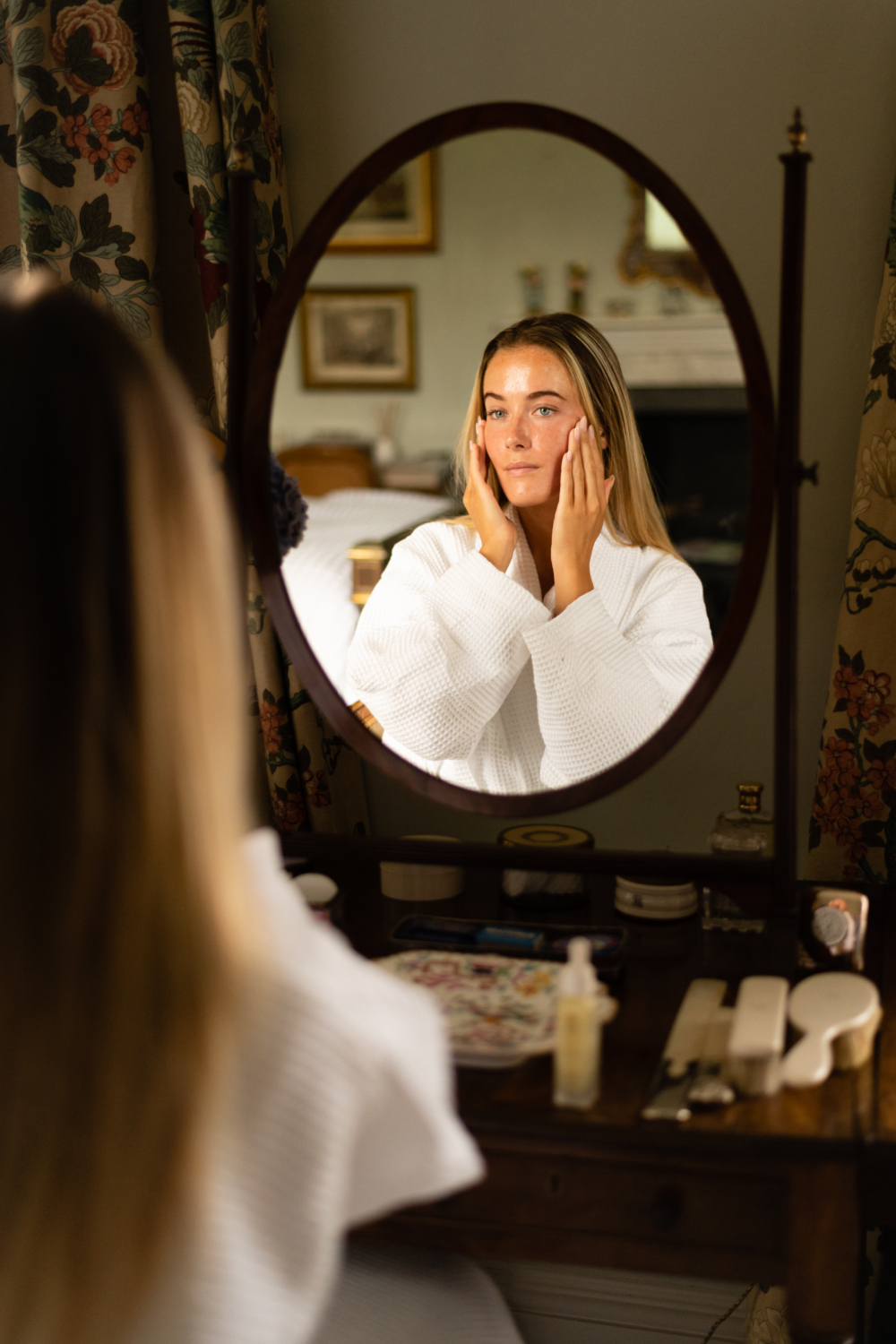
Ask The Expert: Is Organic Beauty Better For Your Skin?
By
7 months ago
Inside the natural skincare movement
With various certifications and greenwashing buzzwords flying about, the world of organic beauty can seem quite murky – especially for those trying it out for the first time. So, where do we start? Lord Newborough, founder of Rhug Wild Beauty, answers all of our questions on the topic.
A Guide To Organic Beauty (& Its Benefits)
What is organic beauty?
Organic beauty refers to the use of natural ingredients in beauty and skincare products that are grown without the use of synthetic pesticides, fertilizers, or genetically modified organisms (GMOs). These products are also often free from artificial chemicals, fragrances, and preservatives, focusing instead on botanical extracts, essential oils, and other natural components.
The organic beauty movement emphasises sustainability, ethical sourcing, and the health benefits of using products that are gentle on the skin and the environment. Consumers are drawn to organic beauty for various reasons, including a desire for safer alternatives, a commitment to eco-friendliness, and a preference for transparency in ingredient sourcing and production methods.
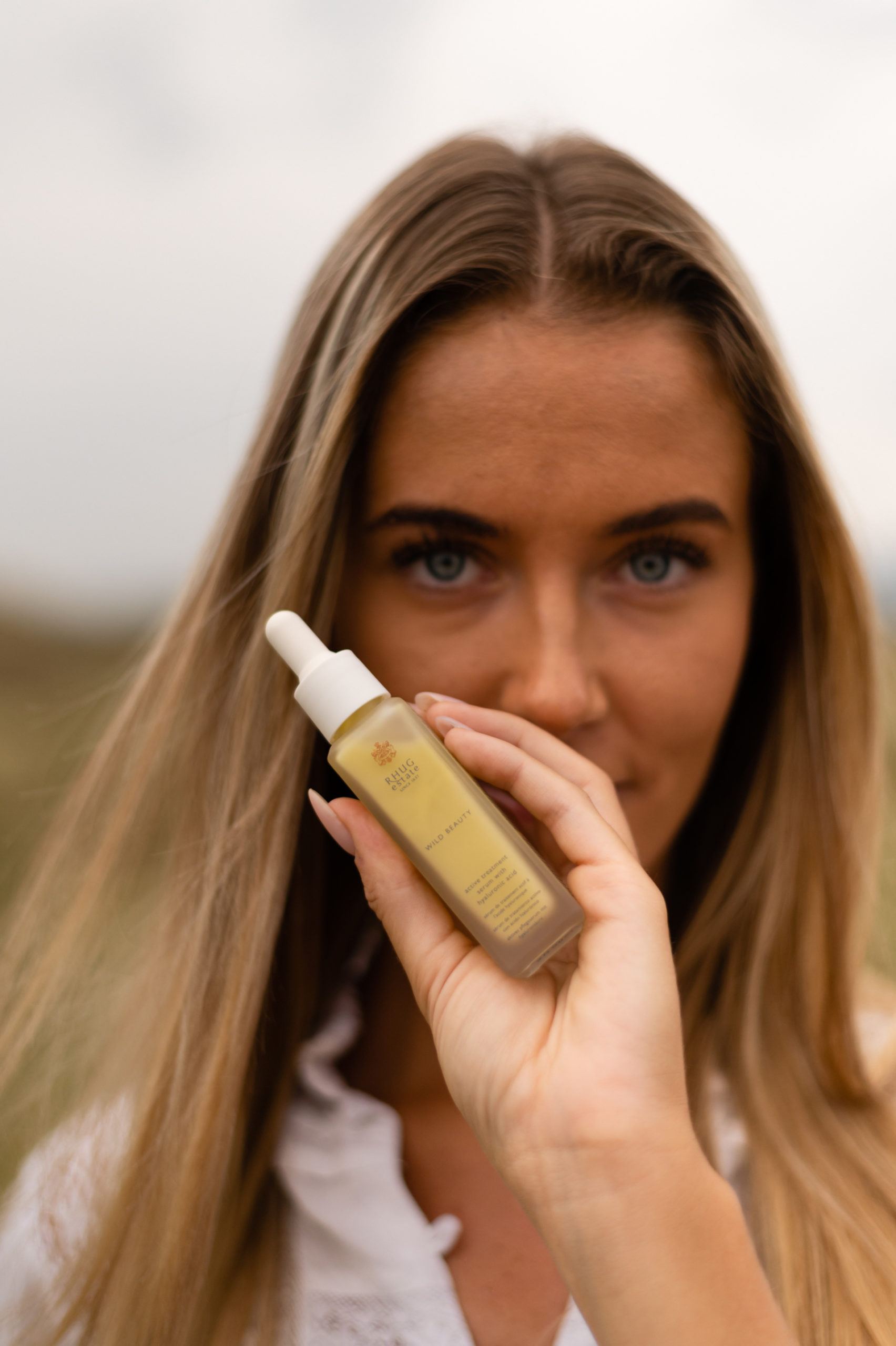
Have you come across any popular misconceptions surrounding the term?
While organic beauty products offer many advantages, it’s important to dispel some common misconceptions:
- Firstly, it’s a myth that organic products are universally safe for everyone. While we strive to use gentle, natural ingredients, individual skin sensitivities can vary. Patch testing is always recommended.
- Secondly, organic products do contain chemicals, but these are naturally derived and generally considered less harmful than synthetic alternatives. The focus is on avoiding harmful additives and prioritizing sustainable sourcing.
- Thirdly, the effectiveness of organic beauty products can vary, just like any other skincare product. It’s essential to choose products that align with your specific skin needs and preferences.
- Lastly, while the organic beauty industry has grown, it’s not just a marketing trend. Many brands, including Rhug Wild Beauty, are genuinely committed to sustainability and ethical practices.
Remember, the key is to research and choose products that resonate with your values and skin goals.
Organic September: 5 Beauty Myths Debunked
Do brands and products need to be certified to claim they are organic?
Yes, skincare brands and products typically need to be certified to claim they are organic. Certification ensures that the products meet specific standards set by regulatory bodies, which vary by country. For example, having the COSMOS Organic certification on products indicates that at least 95 percent of agro-ingredients within that product are organic.
Claiming that a brand or products are organic when they are not poses the risk of negatively impacting the brand reputation; there is also the serious matter of potential legal repercussions.
Which certifications should we look out for?
In terms of being certified Organic, COSMOS Organic, an international standard that certifies organic and natural cosmetics, focusing on sustainable practices, is the certification that is the most important.
There are other certifications that can help consumers understand the ethos and practises of a brand, such as:
- Cruelty-free certifications such as Leaping Bunny, which is a recognised standard for cruelty-free products, ensuring no animal testing is involved at any stage of production.
- Vegan certifications such as Vegan Society, which confirm that no animal-derived ingredients are used in the products.
There are many other certifications that are designed to safeguard consumers and give full transparency. These are the main ones that we have chosen to achieve amongst other such as the Butterfly Mark which, recognises a variety of initiatives such as sustainability practises.
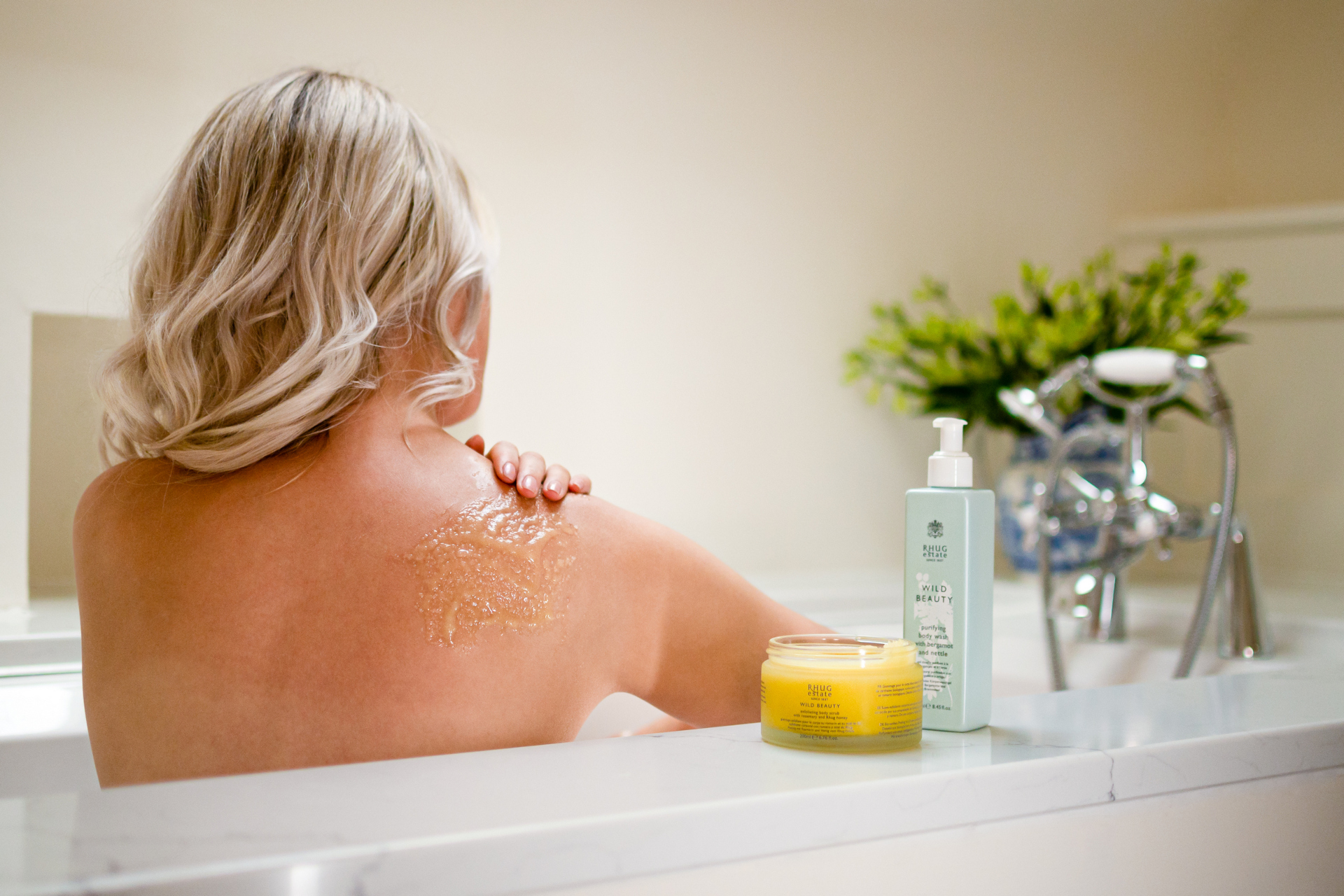
What is the certification process like?
The certification process is rigorous, involving audits, inspections, and documentation to verify compliance with organic standards. This ensures that consumers can trust the claims made by organic beauty brands. Here’s an overview of the general process:
- Research Requirements: Brands must first understand the specific criteria and standards set by the certification body. This includes ingredient sourcing, production methods, and labelling.
- Ingredient Sourcing: Brands need to ensure that their ingredients meet the organic or natural standards required. This may involve sourcing from certified suppliers.
- Documentation: Brands must compile necessary documentation, including ingredient lists, production processes, and sourcing details. This helps demonstrate compliance with certification standards.
- Application Submission: Brands submit their application along with the required documentation to the certification body. There may be an application fee involved.
- Audit and Inspection: Certification bodies usually conduct an audit or inspection of the brand’s facilities and processes. This may include on-site visits to ensure compliance with the standards.
- Review and Decision: After the audit, the certification body reviews the findings and makes a decision. If the brand meets all requirements, it will receive certification.
- Certification Issuance: Once approved, the brand receives certification, allowing it to use the certification mark on its products.
- Ongoing Compliance: Certifications often require periodic re-evaluation, audits, and compliance with updated standards to maintain the certification status.
This process ensures that brands are held accountable to specific ethical, organic, and quality standards.
Are organic beauty products better for you?
Organic beauty products, when formulated with care and expertise, can offer a multitude of benefits. The first thing to consider is that they often contain fewer synthetic chemicals, reducing the risk of irritation and allergic reactions. In our case, natural ingredients, carefully sourced from our own estate, provide gentle yet effective care.
But while organic products may be free from harsh additives, it’s essential to remember that individual skin needs vary. It’s always advisable to patch test new products and consult with a dermatologist if you have specific concerns.
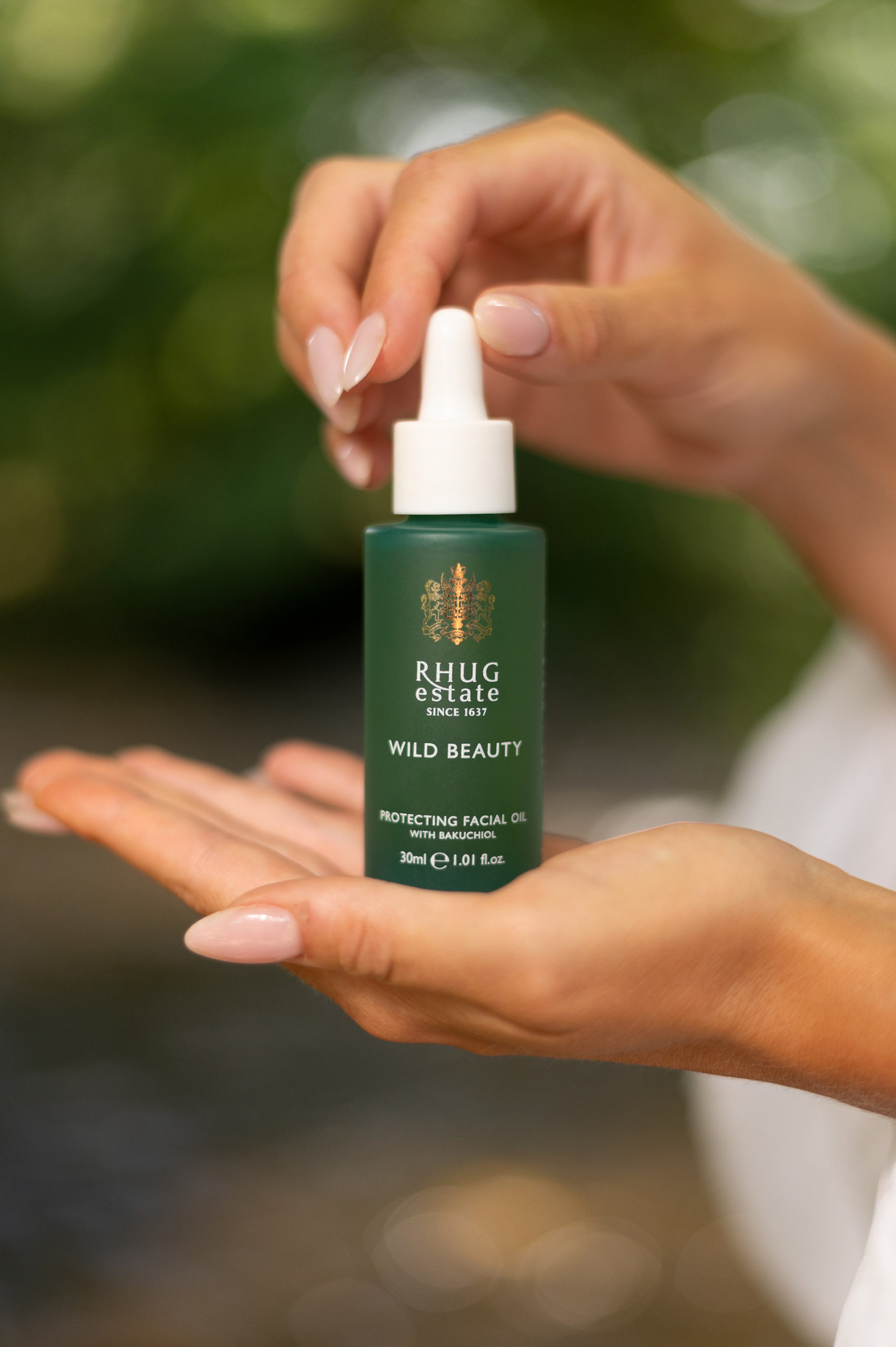
And are they better for the environment?
Generally speaking, organic beauty is generally better for the environment. Organic farming practices reduce pollution, promote biodiversity, and conserve resources. Choosing organic can contribute to a more environmentally friendly approach to beauty.
While organic skincare can be more sustainable, it’s essential to research individual brands as sustainability practices can vary.
Are there any other benefits?
For users, organic beauty products can offer healthier skin, reduced exposure to harmful chemicals, and support for sustainable practices. And, within the industry as a whole, it can promote innovation, ethical sourcing, and environmental responsibility.
What about the drawbacks?
While organic beauty products offer many benefits, they may have a higher price point and shorter shelf life compared to conventional products. There is also the chance that brands could mislead consumers by claiming to be ‘natural’ or ‘organic’. This is why certifications are so important. Additionally, individual skin sensitivities can vary, so patch testing is recommended.
Should more brands go organic?
I believe there is a growing demand for organic and sustainable beauty products. More brands should consider transitioning to organic practices to contribute to a healthier planet and offer consumers healthier options.
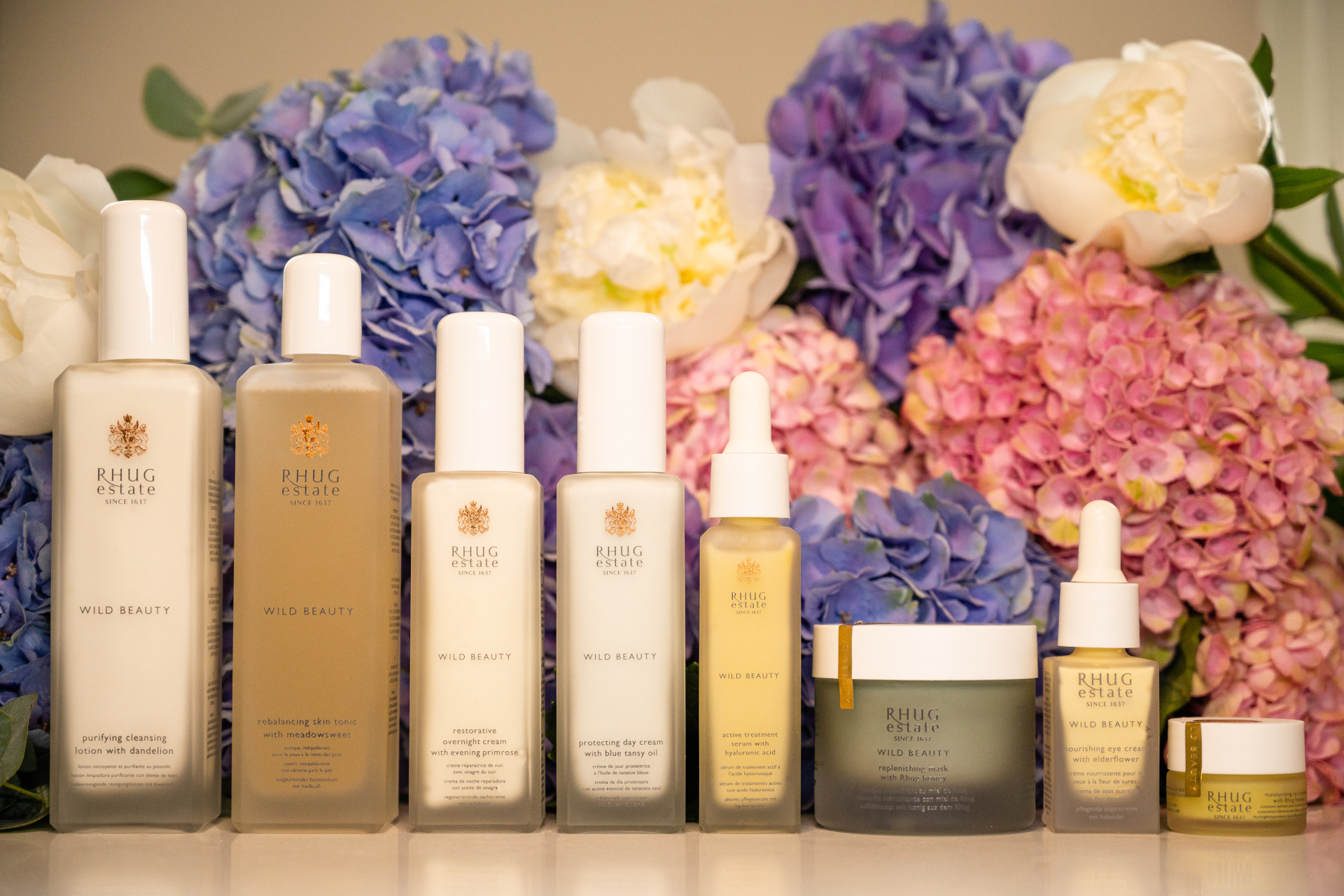
Besides Rhug Wild Beauty, are there any other organic beauty brands that you think are doing a great job right now?
There are several other excellent organic beauty brands, including:
- Tata Harper
- Pai Skincare
- Herbivore Botanicals
Fantastic Organic Beauty Brands To Add To Your Routine
Why should shoppers choose organic beauty products?
Choosing organic beauty products demonstrates a commitment to your health, the environment, and ethical consumerism. By supporting organic brands, you’re contributing to a more sustainable future.
Is there anything else we should know?
Beyond the benefits of organic beauty, it’s essential to research individual brands and their specific practices. Look for certifications, read reviews, and consider your personal skin needs. At Rhug Wild Beauty, we are dedicated to providing high-quality, organic skincare that nourishes both your skin and the planet.
About The Expert
Lord Newborough, the 8th baron of Rhug Estate in North Wales, is an organic farming pioneer and sustainability advocate. He has spent several years transforming the estate into a thriving business encompassing farming, green energy and retail. He launched Wild Beauty back in 2020, a luxury skincare line made from organic and wild-foraged ingredients harvested from the Rhug Estate. rhugwildbeauty.com
Images courtesy of Rhug Wild Estate




